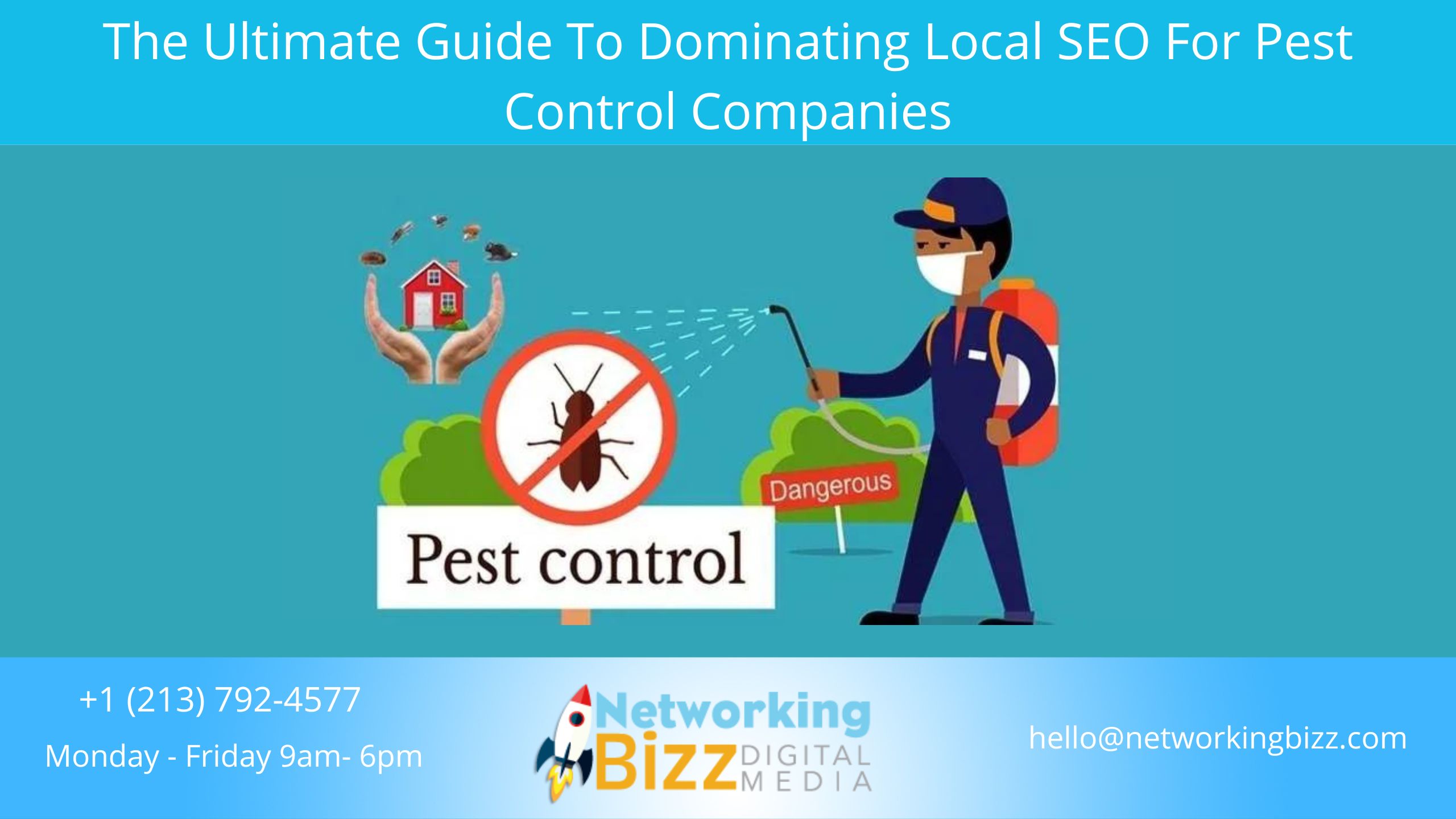Introduction
Companies of any size need to have a robust internet presence in this day and age, and the pest control sector is not an exception to this fundamental requirement. To ensure that prospective clients can locate your pest control services at the precise moment when they require them the most, local search engine optimization (SEO) plays an important role. Providing pest treatment companies with actionable techniques to dominate local search engine optimization (SEO), boost online exposure, and attract specifically targeted consumers is the goal of this thorough guide.
What Is Local SEO?
Local SEO is a specialized branch of search engine optimization that focuses on improving a business’s visibility in local search results. For pest control companies, this means optimizing your online presence to appear prominently when potential customers in your service area search for pest-related services.
Why Local SEO Matters For Pest Control Businesses
When customers are in the greatest need of pest control services, local search engine optimization is the key to contacting them. It is becoming increasingly common for clients to use search engines to locate local businesses. Many digital marketing agencies offer affordable small business SEO packages to help local enterprises improve their online visibility. If your pest control company does not appear in the relevant search results, you run the risk of losing potential customers to other businesses in the same industry.
Observation And Analytical Analysis
Monitor the efficacy of your local search engine optimization consistently by using analytics tools like Google Analytics and Google Search Console. To have a better understanding of the efficacy of your local search engine optimization efforts, it is important to monitor key indicators such as website traffic, keyword ranks, and conversion rates.
Keyword Ranking: Checking your website’s keyword rankings regularly will allow you to evaluate how well your website is performing in the results of specific local searches. To achieve higher results, you should identify possibilities to improve and optimize your content.
User Behavior: Analyzing user behavior on your website is a great way to gain an understanding of how visitors engage with the content you provide. Conversion rates, bounce rates, and time spent on the page are all included in this category. Consider putting this information to use to enhance the overall user experience on your website.
Website Optimization
Your website is the digital storefront for your pest control business, and optimizing it for both users and search engines is crucial for local SEO success. To improve your local SEO for pest control services, focus on optimizing your website with location-specific keywords and creating valuable content that addresses the unique pest control needs of your area.
Mobile-Friendly Design: Maintaining a website that is optimized for mobile usage is not merely a recommendation in light of the growing prevalence of mobile devices for doing online searches; rather, it is an absolute must. To guarantee that your website is responsive and offers a consistent experience across a variety of devices, Google gives preference in search results to websites that are optimized for mobile use.
Local Content Creation: Develop material that is of high quality, which is localized, and which answers the specific wants and problems of the audience you are trying to reach. Create blog posts, articles, and landing pages that naturally incorporate local keywords into their title and meta description. Not only does this help with local search engine optimization, but it also provides evidence that you are an authority in pest management within your neighborhood.
Page Speed Optimization: In terms of both the user experience and the rankings in search engines, page speed is an extremely important issue. To improve the loading speed of your website, you should compress images, make use of browser cache, and reduce the number of items that are not necessary. Web pages that load quickly are rewarded with higher ranks by Google, which increases the likelihood that your website will dominate local search results.
Managing Your Online Reputation And Responding To Reviews
The judgments that prospective clients make are significantly impacted by the reviews that they read online. Trust is built through positive reviews, which also help the success of local search engine optimization.
Encourage Feedback from Past Customers
Customers who are pleased with your services should be actively encouraged to post good evaluations on your Google My Business profile as well as other pertinent review platforms. To increase the amount of positive feedback you receive, you might want to think about putting into action a review generation strategy, such as sending follow-up emails following the completion of the services.
Respond to Reviews
Take the time to interact with your clientele by responding to both positive and negative feedback. Taking a professional approach to addressing bad reviews and actively seeking resolutions indicates your dedication to ensuring the satisfaction of your customers. Small businesses can significantly enhance their online presence by investing in pest control Local SEO tailored to their specific market needs. The presence of this engagement sends a message to search engines that your company is actively involved in the community.
Local Schema Markup
When you use local schema markup on your website, it helps search engines understand the information about your company and increases the likelihood that rich snippets will be displayed in search results. This markup may include information such as the name of the company, its address, its phone number, its operation hours, and feedback from previous customers.
Local SEO Analytics And Monitoring
Monitoring and analyzing your local search engine optimization (SEO) efforts regularly is vital for determining what works and making improvements to your approach based on that information.
Google Analytics: Using Google Analytics, you can monitor the traffic to your website, the behavior of your users, and other important indicators. The examination of these data reveals information about your target audience, the efficiency of your local search engine optimization techniques, and potential areas for enhancement.
Google Search Console: Making use of Google Search Console allows you to keep track of how well your website performs in the search results provided by Google. Using this tool, you may obtain vital information regarding the visibility of your website, the status of its indexing, and potential problems that could have an impact on your attempts to improve your local SEO.
Local SEO Tools: If you want to check the online presence of your company, monitor local rankings, and properly manage your citations, you should investigate local SEO tools such as Moz Local, BrightLocal, or SEMrush. These tools have the potential to simplify the process of optimizing your local search engine optimization strategy.
Conclusion
Pest control companies need to take a planned and diversified approach to dominate local search engine optimization (SEO). Increasing your online exposure and attracting targeted clients in your local area may be accomplished by optimizing your Google My Business listing, developing content that is specific to your area, constructing backlinks that are pertinent to your business, and addressing any technical SEO difficulties that may arise.
You can guarantee that your pest control firm stays at the forefront of local search results by consistently monitoring and adapting to changing SEO trends. This will ultimately drive growth and success in the pest management sector, which is a highly competitive field.




